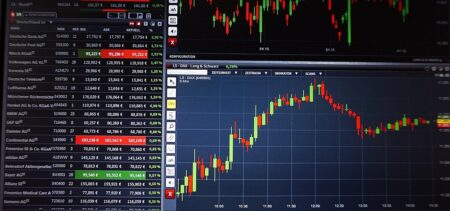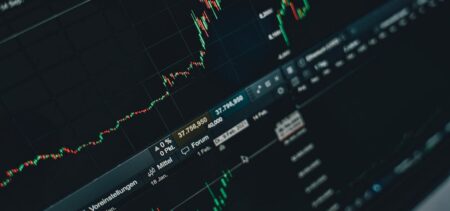China is the world’s second-largest economy and a major trading partner for numerous countries around the world, including the US. This is precisely why the country’s recent slowdown has led to growing concern among Western economists, businessmen, and officials. While some Western countries are more exposed to these risks than others, a decline in import demand combined with supply chain shortages could have a negative impact on economies globally. The question arises: will the US economy remain immune to these new challenges, or will the current global issues turn out to be problematic for the American economy?
According to the Financial Times, some US and European companies have already attributed their disappointing results to China’s slower-than-anticipated economic rebound following the end of its “zero-COVID” restrictions. One reason for the decline may be the overly optimistic growth forecasts made when China suddenly reopened, leading to a shortfall in expectations. Cosmetics group Estée Lauder has recently suffered a record single-day drop after revising its sales forecasts downwards. The company promptly cited a “far more volatile and gradual” recovery in Asia than initially estimated.
However, Estée Lauder is not alone in warning that the Chinese market could take longer than anticipated to bounce back from the effects of the recent restrictions.
Is China’s Economy Accelerating as Planned?
Companies like Starbucks, Qualcomm, NXP Semiconductors, Hilton, Colgate-Palmolive, and Adidas have all mentioned that economic forecasts might have overestimated how quickly China would recover from its “zero-COVID” restrictions. Qualcomm’s CEO, Cristiano Renno Amon, mentioned that while the general expectation was for the Chinese market to rebound soon after reopening, companies are still waiting for a sign of that recovery. According to Hilton’s CEO, Christopher Nassetta, China’s contribution to the company’s performance will probably fall short of his expectations. Similarly, Starbucks mentions “uncertainty in the overall environment,” especially in industries like international travel.
However, not all reports regarding China’s economic recovery are pessimistic. In fact, Reuters reported that China’s economy has grown more than expected in the first quarter, as the end of its “zero-COVID” restrictions helped businesses and consumers rebound. According to data provided by the National Bureau of Statistics (NBS), China’s gross domestic product (GDP) increased by 4.5% year-on-year in the first three months of 2023. The growth rate not only exceeds the previous quarter’s by 2.9%, but also surpassed analysts’ forecasts of a 4.0% expansion.
However, challenges to China’s economic recovery still persist. While Pinpoint Asset Management chief economist Zhiwei Zhang says China’s rebound is “well on track,” journalists report that economic recovery is still uneven.
Potential Consequences for Western Economies
Despite the recent GDP growth, China still faces numerous issues, including a widening deficit caused by a shortfall in revenue and increased spending. Moreover, the housing market is holding back the economy, following a 5.8% decrease in new constructions for homes, offices, and stores in the first quarter of 2023 compared to the corresponding period of 2022. According to The New York Times, these issues could have significant consequences for Western economies. After all, China has been the primary driver of global economic growth over the past twenty years.
Despite ongoing tensions with the US and diplomatic challenges in the relationship with some European countries, China’s economy remains highly interdependent with both regions. This is important not only in light of Russia’s ongoing conflict and its threat to geopolitical stability, but also when considering the probability of a new global recession this year. The International Monetary Fund (IMF) has recently issued a warning, stating that countries worldwide are now facing an escalating risk of a painful slowdown in 2023.
China’s slow economic recovery could become problematic for the US and other Western markets, given the undeniable interconnectedness of these economies.
The Bottom Line
According to Investopedia, China has been the largest global exporter of goods since 2009, and numerous countries around the world depend on the country as a supplier. Consequently, a slowdown in China’s economy can have ripple effects on other countries’ economies. While the American economy is not as closely connected to that of Beijing as the economies of other Western countries, efforts are still being made to separate the two. However, US Treasury Secretary Janet Yellen has recently stated that these efforts could prove “disastrous” for both countries and that a “constructive and fair” economic relationship should be maintained.
“We do not seek to ’decouple’ our economy from China’s. A full separation of our economies would be disastrous for both countries. It would be destabilizing for the rest of the world,” she said. In fact, China is not just the largest exporter of goods in the world, but also a key player in global supply chains and a major destination for foreign investment. Numerous organizations worldwide have invested in China’s economy, while Chinese companies have also invested abroad, including in the US market. This is precisely why economic issues in China can affect companies and investors around the world.
The fact that China’s economy accelerated faster than anticipated during the first quarter is good news for both Chinese and Western investors. However, the remaining issues suggest that there could be a challenging path ahead for their economies.












































